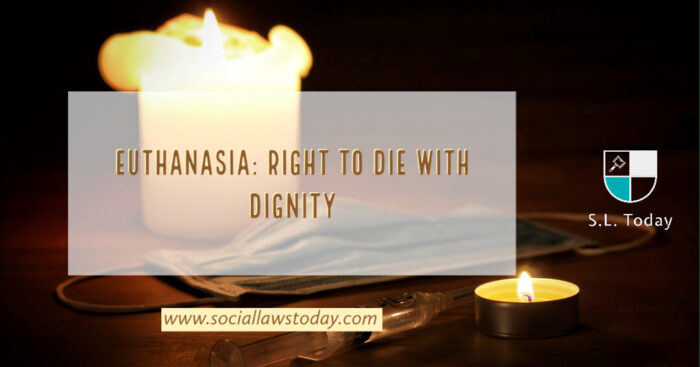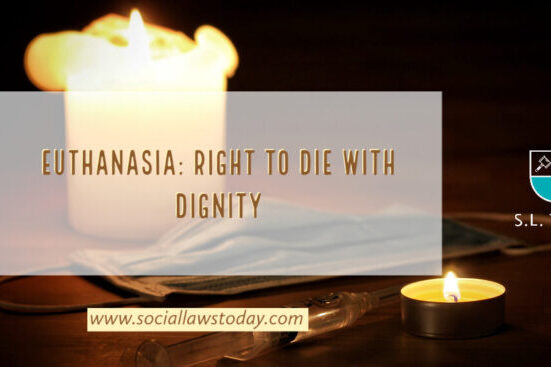Mukul Bansal: This Article deals with Euthanasia in India
Everyone in this world wants to live a long life and want a painless death. But sometimes a situation arises that a person suffers a painful death and to deal with those cases a painless death is provided for a relief to them i.e. “EUTHANASIA”. Euthanasia is described as the deliberate and intentional killing of a person for the benefit of that person in order to relieve him from pain and suffering.
Every citizen in India is provided Fundamental right which cannot be waivered at all, under which Article 21 of the Indian constitution states that to right to life which also means right to live but does it also provide right to die. Moreover, euthanasia is considered as a most controversial and debatable topic all around the world.
It has been divided into 2 parts i.e. Active and Passive Euthanasia.
- Active Euthanasia: Active euthanasia involves painlessly putting individuals to death for merciful reasons, as when a doctor administer lethal or huge dose of medication to a patient.
- Passive Euthanasia: It is an act of Omission. In other words it means when a person is suffering from prolonged illness his medication is discontinued and let him die slowly from that painful life. As passive Euthanasia is legalized in India after the permissions of the officials and the family members of that person. As the country’s highest court permitted its citizens to draft a “living will” that specifies that life support not be given in the case of coma.
RIGHT TO DIE WITH DIGNITY
As we know that part 3 of the Indian Constitution provides us a very crucial fundamental right i.e. Article 21 which states that:
“Protection of Life and Personal Liberty: No person shall be deprived of his life or personal liberty except according to procedure established by law”.
As from the bare reading of the provision we can clearly see that it states that right to life which includes right to live with dignity. It recognizes the sanctity of human life. The question arises is that does this includes a right to die. Euthanasia is concept which can be said is similar to suicide, yet it is completely different from it. It is a completely different act from suicide. As suicide means when any person intentionally tries to kill himself but Euthanasia means when some other person kills that person due to any prolonged illness.
A major development took place in this field on 7 March 2011. The Supreme Court, in a landmark judgment, allowed passive euthanasia. Refusing mercy killing of Aruna Shaunbag[1], lying in a vegetative state in a Mumbai Hospital for 37 years. Hereby, two judge bench came to a decision that passive killing of person is allowed but after the approval of the authorities and family members.
In one of the landmark case our Supreme Court in Gian Kaur v. State of Punjab[2], clearly held that euthanasia and assisted suicide are not lawful in our country. The court, however, referred to the principles laid down by the House of Lords in Airedale[3] case, where the House of Lords accepted that withdrawal of life supporting systems on the basis of informed medical opinion, would be lawful because such withdrawal would only allow the patient who is beyond recovery to die a normal death, where there is no longer any duty to prolong life. As in year 2018 supreme court has again reframed their judgment stating that euthanasia would be considered as valid where citizens to draft a “living will” that specifies that life support not be given in the case of coma.
CONCLUSION
As it is a controversial issue that can be in debate each and every time. Moreover, according to the Supreme Court euthanasia can be used by the unscrupulous relatives of the patients and can be abused and the right to die cannot be made absolute and is subject to regulatory mechanisms. It is the duty of the courts to protect the abuse of law relating to Euthanasia. Taking into consideration that euthanasia is misused in our country made a provision that euthanasia can only be provided to a deceased person if that person make a living will of that or provides his consent when he is in full senses.
[1] WRIT PETITION (CRIMINAL) NO. 115 OF 2009
[2] 1996 (2) SCC 648 : AIR 1996 SC 946
[3] Airdale NHS Trust v. Bland, 1993(1) All ER 821 (HL)


Leave feedback about this